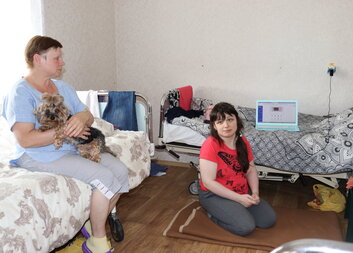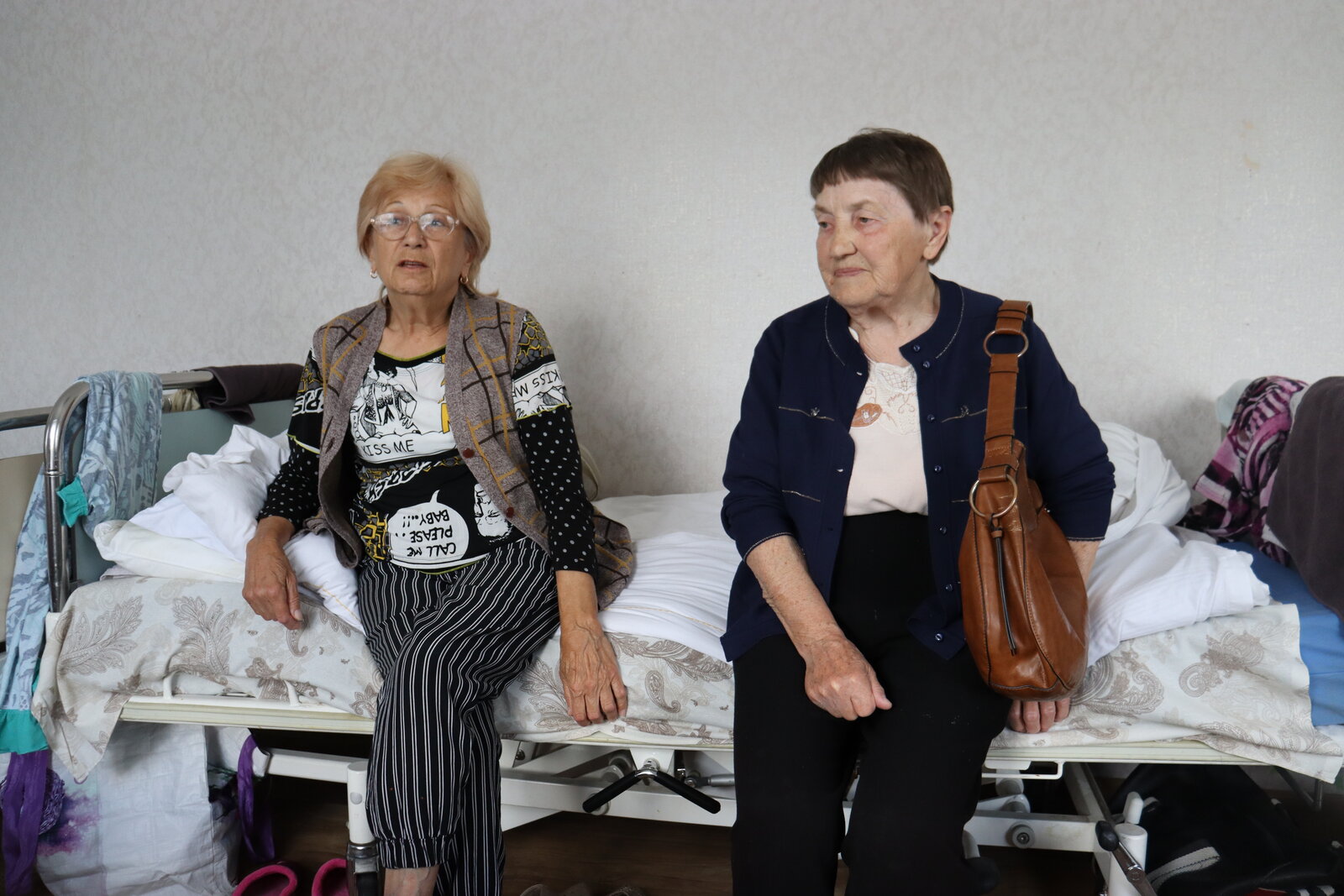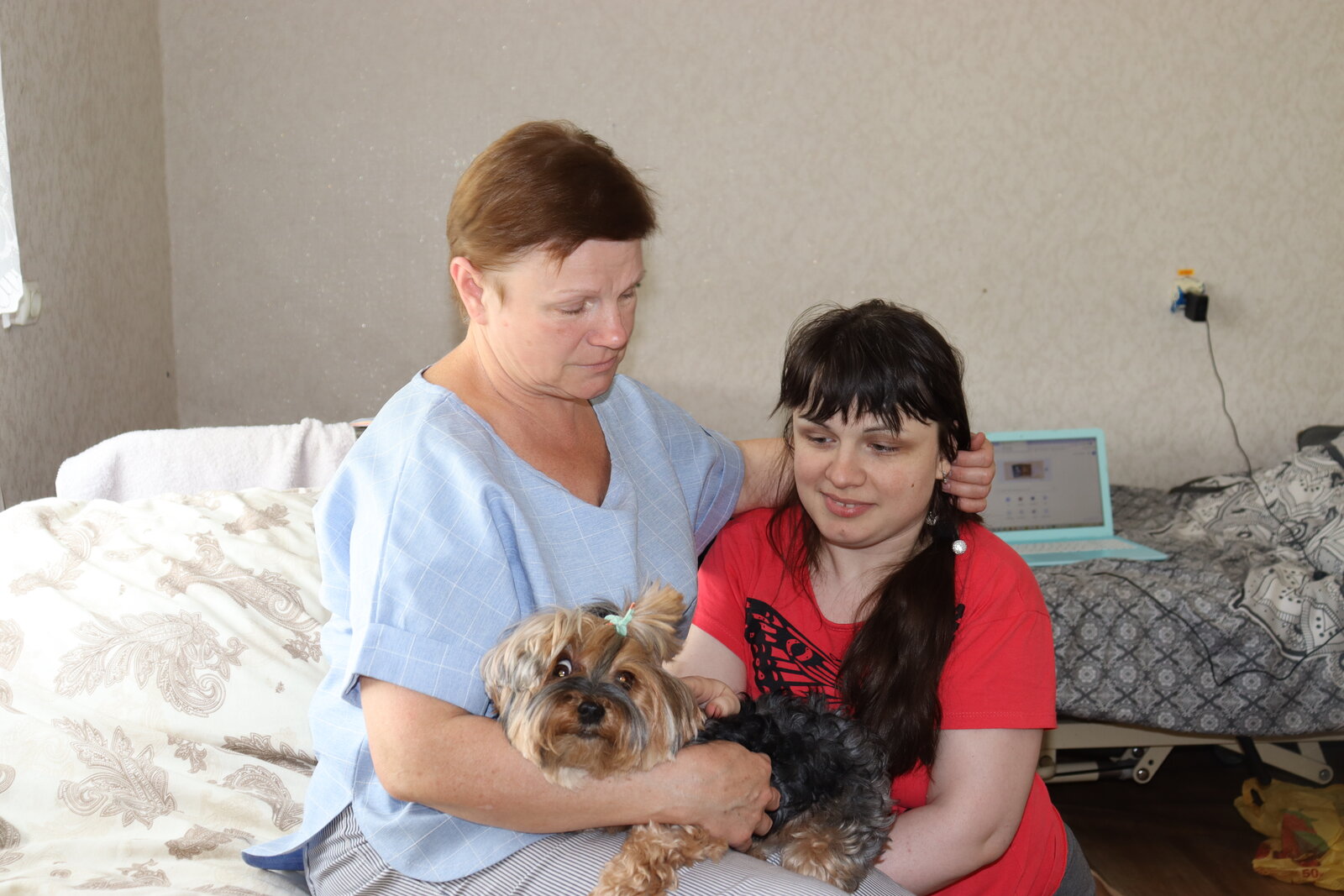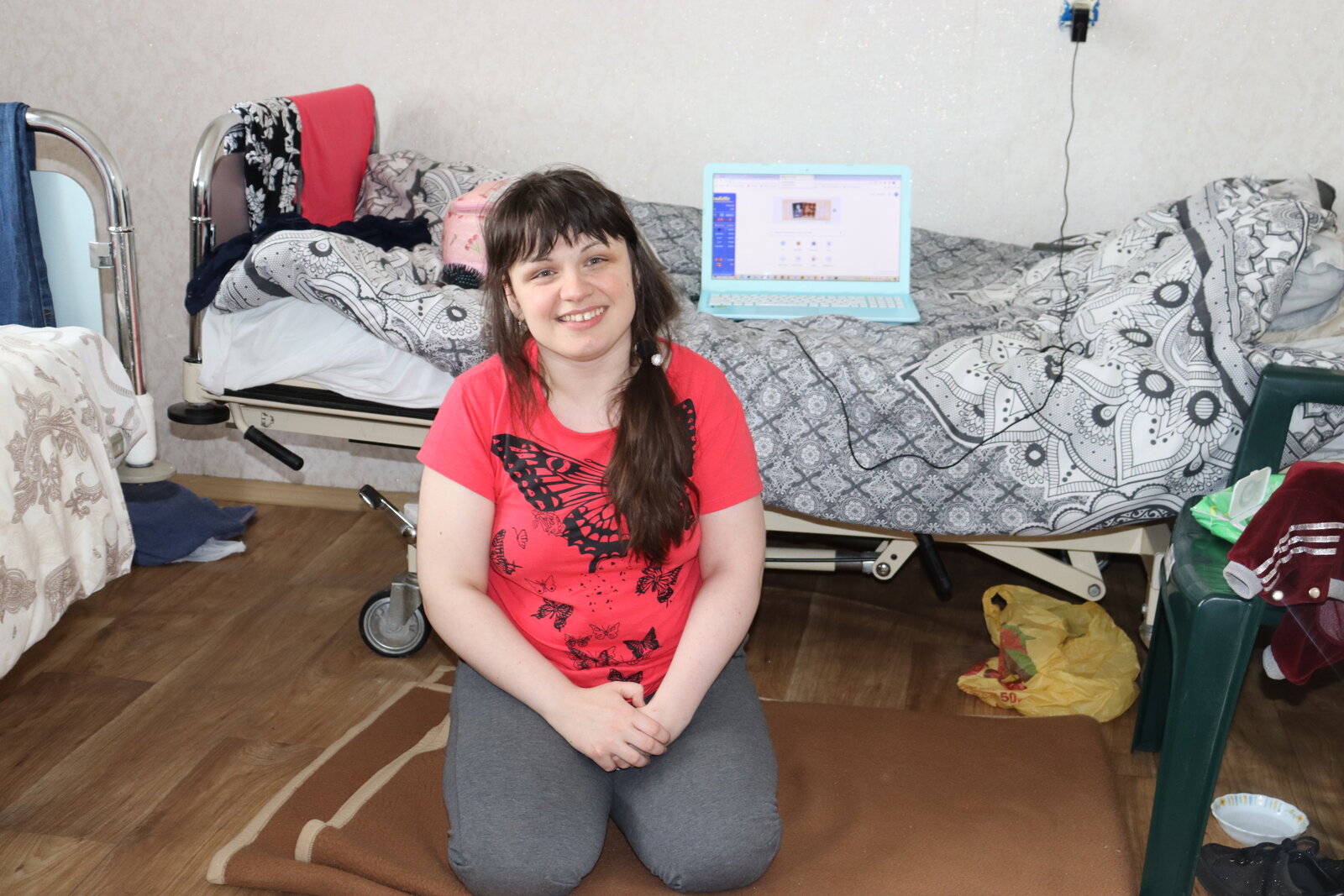The war in Ukraine has turned the lives of millions of innocent people upside down. For over five months, the war has shattered Ukrainians' plans, leaving them without a home, security and stability. Since the first day of the war, Moldova has been sheltering Ukrainian refugees and providing them with urgent humanitarian assistance. After five months, Ukrainians hosted in the Moldova's shelters say they have settled in. They are gradually getting back to the normal course of life, trying to heal their invisible wounds.
The refugees' lives are gradually returning to normal
The village of Greblești in Moldova is now home to 33 refugees with disabilities. Despite all the challenges, the centre's residents are energetic and optimistic. They are like a big family - everyone knows each other, everyone is engaged in activities. They share everything with each other, but don't mention a word about the war. Some are cooking in the kitchen, others are doing their laundry, a few are outside discussing the heatwave.
The first room in the centre is populated by four women of different ages, originally from Nicolaev. They greet us in Romanian.
Some of the refugees were transferred to a placement centre in Chisinau, but chose to return to Greblești: "Initially we wanted to go to Austria or Germany. After two months of waiting, we decided to stay here until the war is over. We feel at home in Greblești. We are receiving cash support that helps us meet our basic needs," said one of the refugees.
Lifelong friendship tested by war
Alla is 77 years old and worked as a naval engineer. When the war started, she thought she would stay in Ukraine to help the army, but her lifelong friendship with Eleonora made her change her mind. Eleonora is 84 years old. After 40 years of working as a surgeon, she is suffering from Alzheimer's now. She needs constant care and supervision. As they say, truly great friends are hard to find and difficult to leave. Alla decided to stay by Eleonora's side and help her leave Ukraine.
Now, their life is gradually returning to "normal". Their little terrier seems to be adapting too: "... it hasn't had a haircut since the war started and that's why the dog looks strange," explains Alla with a smile.
Evacuation from Nicolaev
Ludmila and Alina are mother and daughter. They were evacuated from Nicolaev after 100 days of war and arrived in Moldova in June 2022.
"We were hiding from the shelling in the bathroom. We couldn't get down into the shelter because Alina couldn't walk. We were living upstairs. All this time we counted the tiles in the bathroom.You know, none of them are the same. It's like a puzzle."
Alina is 33. She was born with a mobility impairment, nevertheless she is full of optimism.
Even though her doctor has gone off to fight on the front and can no longer help her, she is looking forward to the end of the war so she can return home and restart her therapy. She is convinced that one day she will be able to walk on her own.
Independence is very important to Alina. She shared with us that the EU-funded cash support provided by Caritas Czech Republic gives her independence: "I feel autonomous and in control of my decisions."
In conversations with Ukrainian refugees, the word freedom often comes up. "You can get used to not having water on tap, not having electricity or gas in your household, but you can't get used to the thought that someone steals your right to freedom. And the feeling of freedom motivates us to continue our lives with all the ups and downs that get in our way," says Alla.
The invisible wounds and needs of Ukrainian refugees
Often, war-torn refugees need more than just a roof over their heads. In addition to material loss, they are left with many emotional wounds.
To facilitate the inner recovery process, Caritas Czech Republic, thanks to the support of the European Union, offers psychological support to Ukrainian refugees, helping them to cope with the emotional traumas caused by war and displacement. More than 900 refugees from different regions of the country have already benefited from psychological therapy sessions.
At the same time, in order to meet the basic needs of refugees, Caritas Czech Republic has started the distribution of basic hygiene products to the shelters. Five placement centres across the country with about 200 Ukrainian refugees will receive diapers, disinfectants, wet wipes, toothpaste absorbents, and other hygiene products.
Cash support, distribution of hygiene products and psychological support are part of the project "Emergency support for vulnerable refugees from Ukraine in Moldova" funded by the European Civil Protection and Humanitarian Aid Operations.
Interested in more stories like this? Read more:
- Ukrainian refugees sheltered in Moldova start enjoying life again
- Stories of refugees: Soldiers pointed a gun at us because of the Ukrainian anthem
- Aurica’s life is returning to normality thanks to cash assistance for refugees in Moldova








